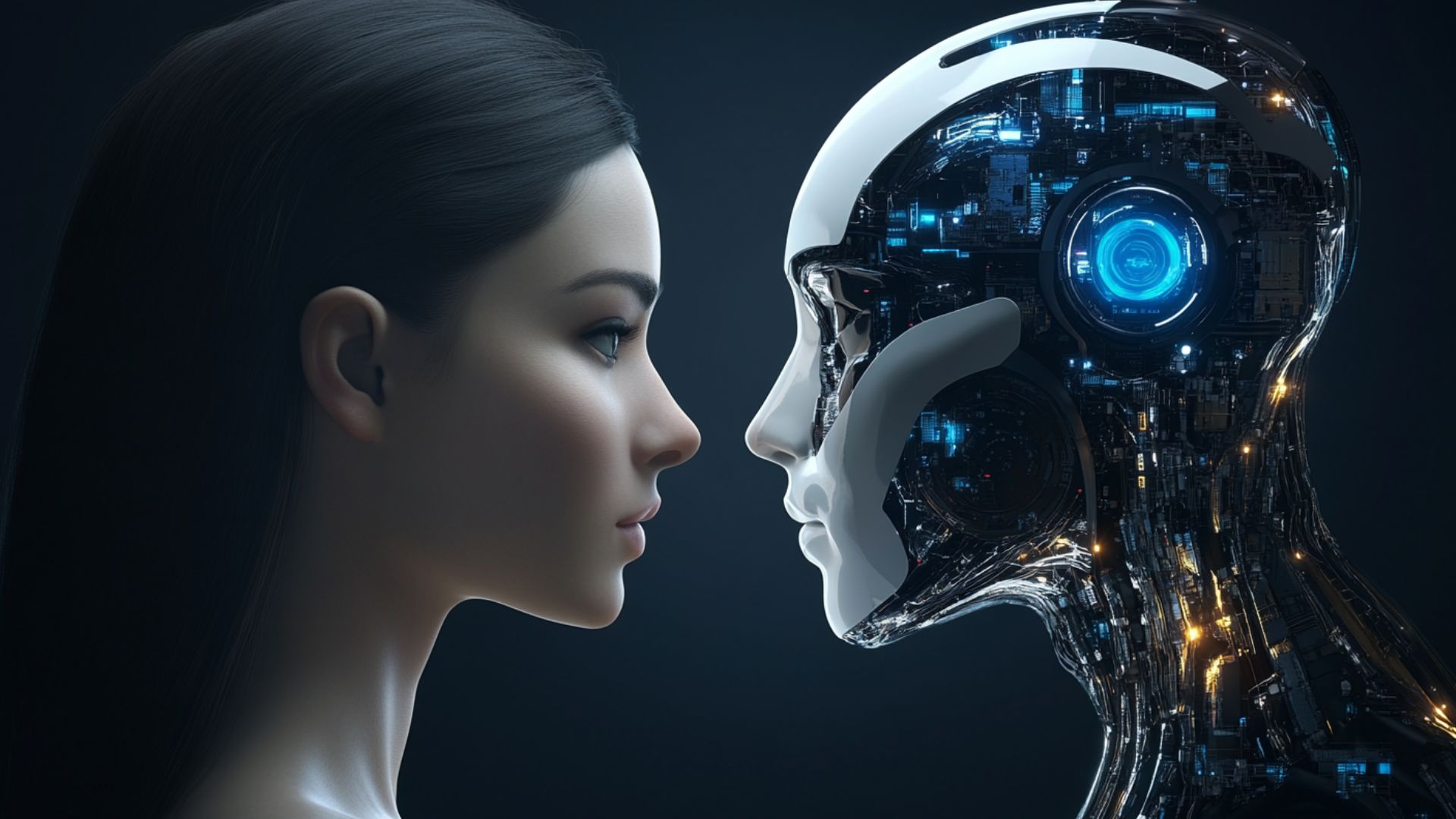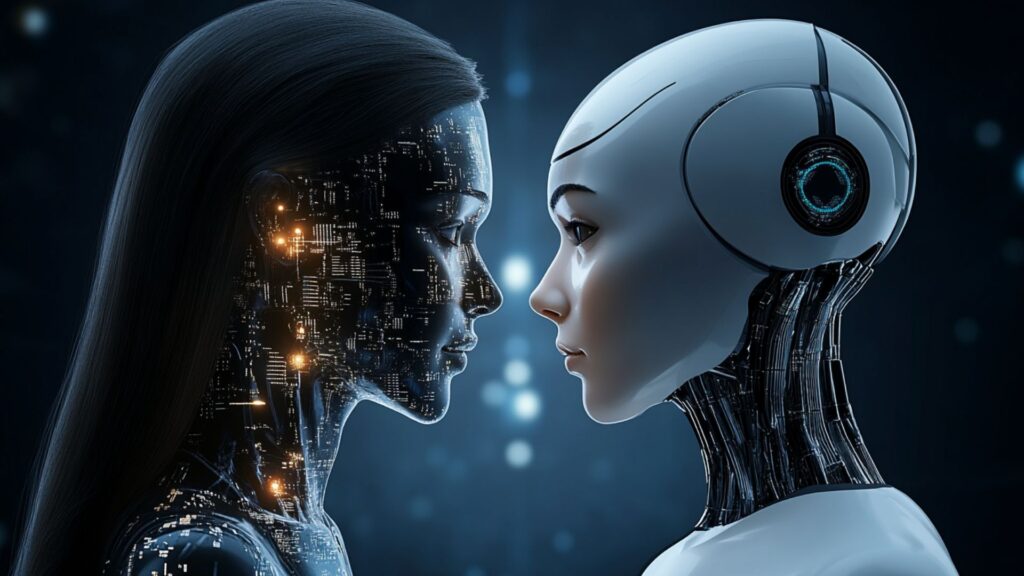Artificial Intelligence vs. Intelligent Agents: Clarified by Digital Workers

Artificial intelligence and intelligent agents are often confused, yet they differ significantly in capabilities and applications. AI encompasses broad systems that mimic human intelligence through machine learning and natural language processing. Intelligent agents are autonomous entities that perceive environments, make decisions, and take actions to achieve specific goals.
Understanding this distinction is crucial for businesses, researchers, and practitioners. Misapplying these technologies leads to inefficiencies or missed opportunities. For businesses, choosing the right technology drives innovation and competitive advantage. Researchers need clarity to develop precise solutions. Practitioners rely on accurate definitions to implement effective systems.
Digital workers bridge the gap between artificial intelligence and intelligent agents. They combine AI's cognitive capabilities with autonomous decision-making to execute tasks and adapt to changes. Digital workers optimize workflows in real-time while maintaining human-like interaction quality. This guide clarifies these definitions to help organizations strategically apply the right technology.
By understanding the differences between AI and intelligent agents, businesses can unlock their potential and achieve more effective outcomes.
Defining Artificial Intelligence and Intelligent Agents
Artificial intelligence is the science of designing systems that mimic human intelligence and reasoning. It encompasses core abilities such as learning, reasoning, and problem-solving. AI powers various technologies including machine learning, computer vision, and natural language processing.
Intelligent agents are autonomous entities that use AI technologies to perform specific tasks. They actively perceive their environment, make informed decisions, and take actions to achieve predetermined goals. These agents operate independently while adapting to changing conditions in real-time.
Core features of intelligent agents:
- Autonomy: They operate independently without requiring constant human supervision.
- Reactivity: They respond to environmental changes and new information in real-time.
- Proactivity: They take initiative and anticipate needs to achieve objectives before problems arise.
- Social Ability: They interact effectively with other agents, systems, and human users.
The key distinction is fundamental: AI provides the underlying capability while intelligent agents apply that capability practically. An AI model processes customer data to generate behavioral insights. An AI-powered chatbot functioning as an intelligent agent uses that capability to interact with users and adapt conversations.
This distinction has significant practical implications. AI models analyze data in the background, enabling predictions and strategic insights. Digital workers actively execute tasks like automating customer support and managing workflows. They combine AI's analytical power with direct action capability.
Understanding these definitions enables organizations to select appropriate technology for their requirements. AI excels at data-driven tasks like analytics and pattern recognition. Intelligent agents excel in dynamic environments requiring real-time decision-making. By leveraging both technologies strategically, businesses can optimize operations and drive innovation.
Artificial Intelligence as a Broad Concept
AI represents a broad discipline encompassing machine learning, natural language processing, and computer vision. These interconnected areas enable systems to mimic various aspects of human intelligence. AI focuses on decision-making, prediction, and pattern recognition while driving automation across industries.
Key AI fields and applications:
| AI Field | Core Function | Example Application |
| Machine Learning | Learns from data to make predictions | Fraud detection in banking |
| Natural Language Processing | Understands and generates human language | Customer support chatbots |
| Computer Vision | Interprets and analyzes visual data | Facial recognition systems |
AI's greatest strength lies in processing vast amounts of data impossible for humans to handle. Machine learning algorithms predict customer preferences with remarkable accuracy. Natural language processing enables systems to understand text and speech, powering virtual assistants. Computer vision allows machines to interpret images precisely, identifying manufacturing defects or analyzing medical scans.
These capabilities enhance business decision-making processes significantly. AI predicts market trends and consumer behavior, improving strategic planning. It automates repetitive tasks, freeing human resources for creative work. This automation leads to substantial cost savings and faster operations.
Across industries, artificial intelligence and intelligent agents drive transformative innovation. Healthcare organizations use AI for diagnostic imaging, enabling precise medical scan analysis. Retail companies leverage AI to personalize shopping experiences and optimize inventory. Manufacturing companies employ AI for quality control and predictive maintenance.
AI's success depends on proper implementation and strategic alignment. Businesses must align AI tools with specific goals and operational requirements. Misapplication leads to inefficiencies and wasted resources. By understanding AI's broad scope, organizations can harness its power to ensure automation initiatives deliver measurable results.
Intelligent Agents in Applied Contexts
An intelligent AI agent is an autonomous entity that operates within environments, perceives changes, and takes purposeful actions. While AI provides broad capabilities, intelligent agents actively apply AI to interact with humans and systems. They make independent decisions, adapt to conditions, and execute complex tasks in real-time.
Key applications of intelligent agents:
- Customer Service Agents: Handle inquiries, provide personalized support, and resolve issues while maintaining consistent quality.
- Supply Chain Management Agents: Optimize logistics, manage inventory, and predict demand patterns to reduce costs.
- Robotic Process Automation Agents: Automate routine tasks like data entry and invoice processing with exceptional accuracy.
Intelligent agents excel in dynamic, fast-changing environments where adaptability is essential. In customer service, they use AI to understand queries and respond instantly. Advanced chatbots resolve issues, guide users through troubleshooting, and escalate problems when necessary.
In supply chain management, intelligent AI agents analyze real-time data to streamline operations. They predict inventory needs, identify bottlenecks, and automatically adjust ordering patterns. These agents coordinate with multiple systems simultaneously, ensuring smooth operations.
We explore what an intelligent agent is in the context of artificial intelligence and its impact. These agents demonstrate sophisticated interaction capabilities across multiple channels. They process voice commands, text messages, and gesture-based interactions while communicating clearly. They connect with data sources, analyzing patterns to inform decisions. They integrate with business systems, enabling coordinated actions across departments.
The Role of Digital Workers in Bridging the Gap

What is an intelligent agent? It represents an advanced evolution of intelligent agents as software-based entities that automate complex tasks. Powered by sophisticated AI algorithms, digital workers handle processes that traditionally required human intervention. They integrate three core capabilities: perception, reasoning, and action in coordinated workflows.
Perception involves sensing inputs from data sources, user interactions, and system environments. Reasoning utilizes AI algorithms to analyze information and make informed decisions. Action involves executing tasks based on these decisions with precision. This integrated cycle enables adaptive behavior, allowing digital workers to adjust responses.
Key digital worker applications:
- Customer Support Operations: Handle complex inquiries, resolve technical issues, and provide personalized 24/7 service.
- Human Resources Automation: Manage recruitment, streamline onboarding, and handle employee queries while maintaining compliance.
- Financial Operations Management: Process transactions, detect fraud, and generate reports with exceptional accuracy.
Digital workers significantly enhance organizational productivity by bridging artificial intelligence capabilities with intelligent agent functionality. They reduce error rates, eliminate repetitive tasks, and free employees for strategic activities. In customer support, they improve response times and consistency. In HR, they streamline processes and improve experiences. In finance, they ensure compliance and accelerate processing.
Organizations that adopt digital workers gain substantial competitive advantages. They optimize workflows, reduce costs, and drive innovation more effectively. Digital workers make advanced AI capabilities accessible for businesses of all sizes.
Why Digital Workers Are More Than Traditional Bots
The definition of an intelligent agent represents significant advancement beyond traditional rule-based bots and automated systems. While conventional bots follow predetermined scripts, digital workers function as sophisticated intelligent agents in dynamic environments.
Traditional bots operate within fixed parameters and struggle with unexpected scenarios. They lack flexibility and cannot adapt to complex situations. Digital workers leverage AI capabilities to handle nuanced situations with human-like adaptability.
Key advantages of digital workers:
- Adaptability: They instantly adjust behavior based on new data and changing conditions without manual reprogramming.
- Scalability: They efficiently handle increasing workloads, processing thousands of interactions while maintaining quality.
- Contextual Learning: They learn from previous interactions, continuously improving performance and decision-making over time.
Digital workers demonstrate human-like qualities in interactions and decision-making. They understand user intent with sophisticated natural language processing, even with ambiguous requests. They respond in real-time with contextually appropriate solutions. Unlike basic chatbots with scripted responses, digital workers handle nuanced requests and adapt communication styles.
Types of intelligent agents in artificial intelligence systems:
- Simple Reflex Agents: React to immediate inputs based on predefined rules.
- Model-Based Agents: Track environmental states and changes over time.
- Goal-Based Agents: Focus on achieving specific objectives through planned actions.
- Learning Agents: Continuously improve through experience and feedback.
Digital workers combine elements from all agent types, using advanced AI for sophisticated tasks. They manage complex customer interactions with natural understanding and automatically optimize workflows. Their superior adaptability makes digital workers essential for driving efficiency and innovation.
Case Study: Digital Worker in Banking Services
A major banking institution implemented a digital worker as an intelligent customer service assistant. Unlike traditional systems with rigid scripts, this digital worker utilized advanced capabilities to deliver efficient, personalized interactions.
The digital worker operates through three stages. First, it perceives customer requests through various channels using natural language processing. Second, it applies AI-powered reasoning to analyze customer data and regulations. Third, it takes action by executing transactions or routing complex issues to specialists.
Here are measurable outcomes of these types of intelligent agents in artificial intelligence:
- Faster Response Times: Reduced average response time by 60% compared to traditional operations.
- Reduced Error Rates: Achieved 40% reduction in processing errors through AI-driven accuracy.
- Improved Customer Satisfaction: Surveys showed 25% higher approval ratings due to consistent, timely support.
- Cost Efficiency: Reduced operational costs by 35% while improving service quality.
The digital worker handles routine banking tasks including balance inquiries, transaction history, and fund transfers. This freed human staff to focus on complex financial advisory services and relationship management.
The implementation demonstrated significant scalability benefits during peak periods. The digital worker handled increased volumes without degradation in quality, processing thousands of simultaneous interactions.
This case study illustrates how intelligent agents in artificial intelligence transform traditional service industries. The digital worker improved efficiency and reduced costs while enhancing customer experience through reliable, personalized service.
Comparative Analysis: AI Systems vs. Intelligent Agents

Understanding differences between AI systems and intelligent agents is crucial for strategic technology decisions. AI functions as the "brain" providing cognitive capabilities. Intelligent agents serve as the "body" applying these capabilities practically.
Intelligent AI systems excel at processing large datasets to generate insights and predictions. They focus on computational tasks like pattern recognition and data analysis. A fraud detection AI analyzes transactions to identify suspicious patterns but operates in the background.
Intelligent agents execute tasks and interact dynamically with users and systems. A fraud prevention digital worker identifies suspicious activities, engages customers to verify transactions, and guides users through security processes.
Key differences:
| Aspect | AI Systems | Intelligent Agents |
| Interaction | Operate in background | Actively engage with users |
| Purpose | Analyze data and generate insights | Execute tasks and take actions |
| Scope | Focus on computational tasks | Apply AI in practical scenarios |
| Examples | Predictive models | Chatbots, digital workers |
For enterprise strategy, this distinction drives technology selection decisions. AI systems are ideal for data-intensive operations like business intelligence and forecasting. Intelligent agents excel in customer-facing roles requiring real-time interaction and autonomous decision-making.
Misaligning these technologies results in inefficiencies and missed opportunities. Using AI for customer interaction may cause poor responsiveness. Deploying agents for pure data analysis wastes interactive capabilities.
Strategic enterprises achieve optimal results by combining both technologies synergistically. AI systems provide analytical foundation while intelligent agents apply capabilities to execute actions. This integrated approach maximizes value while maintaining excellent customer experiences and competitive advantages.
Challenges and Future Perspectives
The definition of an intelligent agent describes an autonomous system. Implementing intelligent agents presents challenges that organizations must address for successful outcomes. Understanding these challenges and planning for developments is essential for strategic adoption.
Common misconceptions equate AI with intelligent agents, leading to misaligned expectations. AI provides broad capabilities while intelligent agents represent practical application. This confusion results in organizations choosing inappropriate solutions.
Key implementation challenges:
- Over-automation Risks: Excessive reliance reduces human oversight, potentially leading to inappropriate automated decisions.
- Algorithmic Bias: Flawed training data results in unfair decisions, particularly in sensitive areas like hiring.
- Lack of Transparency: Complex algorithms create "black box" processes that erode user trust.
- Integration Complexity: Implementation requires significant changes to existing systems and workflows.
The future lies in hybrid work environments where intelligent agents in artificial intelligence collaborate with humans. Rather than replacing workers, agents will handle routine tasks while humans focus on creativity and strategy.
Digital workers will expand capabilities in customer service, logistics, and financial operations. They will become more sophisticated in adapting to real-time demands and learning from interactions.
Organizations that address challenges while embracing opportunities will leverage intelligent agents effectively. The future promises agents that enhance human capabilities, creating more efficient organizations while maintaining human elements that drive creativity and strategic thinking.


